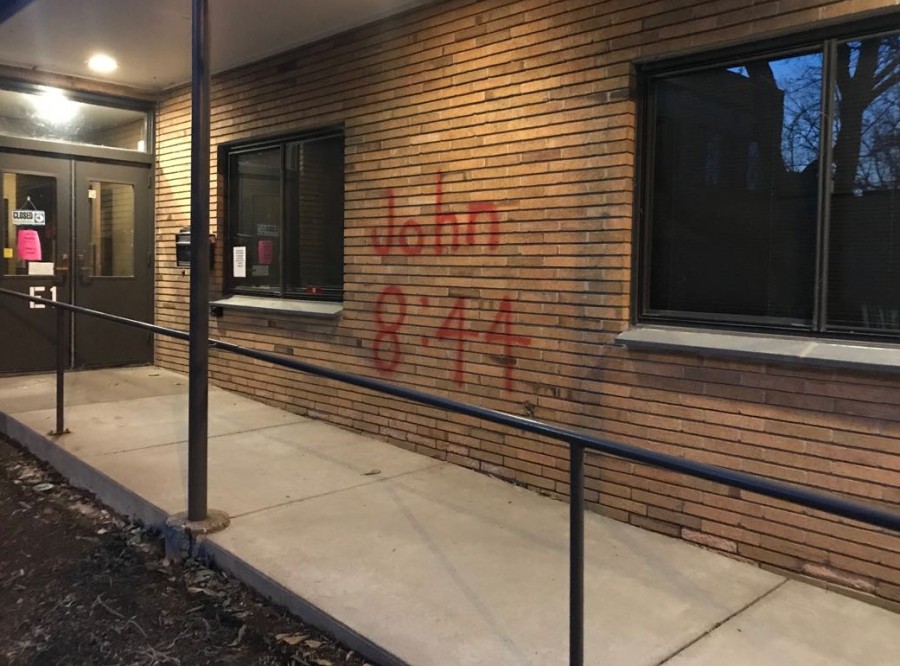Last week, Jewish families and individuals around the world gathered to celebrate Hanukkah. Despite this time being a sacred observance, anti-semitic hate crimes surged internationally.
Throughout the eight days of Hanukkah, the only Anne Frank memorial in the United States was defaced with swastika stickers that read “we are everywhere,” four passengers on a Belgian train threatened to blow up the railroad car if the Jewish passengers did not exit and a Jewish high school in New York was the target of a cyberattack that displayed antisemitic images on the school’s website, among countless other injustices.
One of these attacks, however, hits closer to home for many PV students: the vandalizing of Temple Emanuel of Davenport, Iowa. On Dec. 10, 2020, the first night of Hanukkah, the phrase “John 8:44” was spray painted in red near the entrance of the synagogue.
According to an interview with local broadcasting station KWQC, Rabbi Bertenthal shared the hurtful context in which the Bible verse is often interpreted. “Unfortunately, some disturbed soul decided to come to our synagogue this afternoon and vandalize it by spray painting the walls with a biblical citation that, in my opinion, is a hateful citation because it basically seems to be accusing [Jewish people] of being the spawn of Satan,” she shared.
This is not the first that this biblical verse has been used in an anti-semitic way; but was also used by the shooter at the Tree of Life Synagogue of Pittsburgh, Pennsylvania in 2018.
Senior Jacob Frankel, member of the Jewish community and worships at Temple Emanuel, has noticed a difference in the religious rhetoric of the Quad Cities. “My synagogue has to have a police officer there when we have service. This is just in case someone wanted to harm us,” he noted. “When my stepmom went to our synagogue for the first time, she was shocked by that. Most churches don’t have to put a police officer out front to protect the people from being hurt.”
This is not the first instance of antisemitic behavior that Frankel has encountered, either. During his sophomore year, he remembers an instance where bathrooms were defaced with swastikas and other degrading and hateful remarks targeted at the Jewish community.
“To see swastikas and hate speech not on the news but in front of my own eyes is disappointing,” Frankel said. “But, I appreciate the parents and school officials for taking it so seriously immediately calling out this bad and unacceptable behavior. I hope that this individual and others who might commit similar acts learn this is no joke and Jewish people are not just words or symbols.”
These behaviors, however, are becoming increasingly frequent. According to research done by the Anti-Defamation League, an anti-hate organization, there was a 57 percent increase in antisemitic acts from 2016 to 2017.
This antisemitic rhetoric is something that alumni Sam Rothbardt, who also worships at Temple Emanuel, has noticed is common, but not acknowledged. “Lots of people are very casual about how they say things and [antisemitism] gets shrugged off too often,” he explained. “In general there has always been anti-semitism that doesn’t get enough light shed on it.”
While progress has been made to combat these hate crimes, such as Iowa’s passing of Anti-Semitism Awareness Day in response to these acts, the antisemitic rhetoric remains prominent not only in the Quad Cities, but around the world.
















